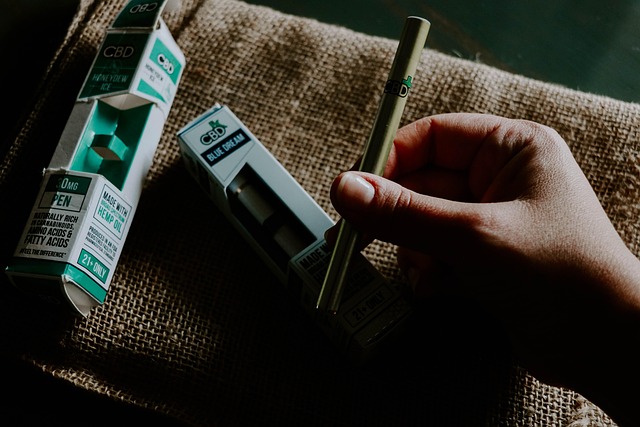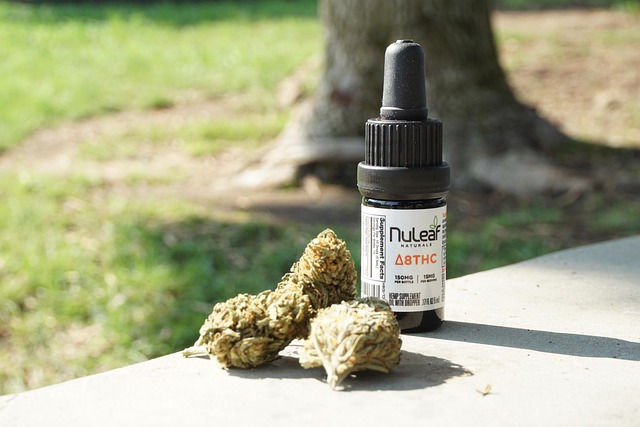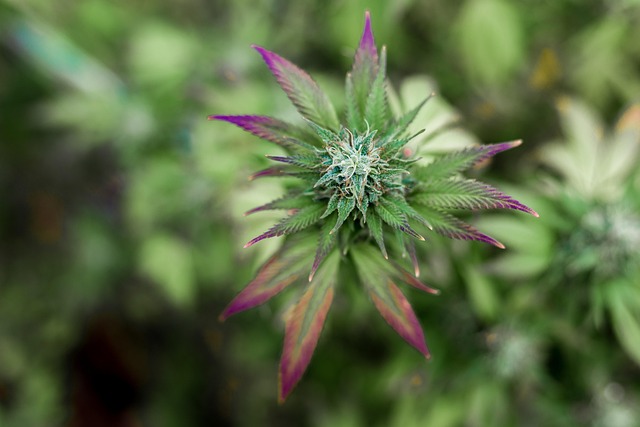The legal status of CBD vapes varies globally, with regulations evolving and creating confusion. Key distinctions exist between hemp-derived (under 0.3% THC) and cannabis-based CBD vapes, each subject to different laws. US state laws vary widely, ranging from liberal to stringent, while global regulations focus on therapeutic benefits versus safety concerns. Consumer awareness and staying informed are crucial for navigating the complex landscape and avoiding legal issues related to CBD vapes.
Are CBD vapes legal? This question has sparked curiosity as the popularity of vaping continues to rise. CBD vapes, a seemingly modern trend, operate within a complex legal landscape shaped by federal and state regulations. This article delves into the intricate details surrounding CBD vapes, exploring their legal status, permitted uses, and safety considerations. By understanding the current frameworks, we aim to provide insights into the future of CBD vaping and its evolving regulations.
- CBD Vapes: Understanding Legal Frameworks
- Federal vs State Laws on CBD Vaping
- Permitted Uses and Restrictions
- Safety Considerations and Future Regulations
CBD Vapes: Understanding Legal Frameworks

The legal status of CBD vapes varies significantly across different regions. In many countries, the regulation of CBD products is still evolving, leading to confusion among consumers and industry players alike. The primary challenge lies in understanding the distinction between hemp-derived CBD vapes and cannabis-derived ones. Hemp (with less than 0.3% THC) is generally legal under certain circumstances, while cannabis remains heavily regulated. This complexity necessitates a thorough examination of local laws.
For instance, some jurisdictions allow the sale and possession of CBD vapes for medicinal purposes only, requiring specific prescriptions from licensed healthcare providers. Others might have more stringent restrictions, prohibiting the sale or even possession of all forms of CBD products, including vapes. The lack of uniform regulations highlights the need for consumers to stay informed about their local laws. Staying up-to-date with legislative changes is crucial, as it directly impacts the accessibility and legality of cbd vapes in specific regions.
Federal vs State Laws on CBD Vaping

The legal status of CBD vapes is a complex issue that varies significantly across different regions within the United States. While federal laws have yet to provide a clear and uniform direction, state-level regulations offer a more diverse picture. At the federal level, the U.S. Food and Drug Administration (FDA) has not approved CBD products for any medical use, including vaping, due to limited research on their safety and efficacy. This has led to a patchwork of state laws, with some allowing the sale and use of CBD vapes without restrictions, while others have implemented stringent regulations or outright banned them.
This discrepancy between federal and state laws creates confusion for both consumers and businesses dealing in cbd vapes. Some states, like Wyoming and Utah, have taken a more liberal approach, recognizing the potential therapeutic benefits of CBD and allowing its use in various forms, including vaping. In contrast, other states, such as New York and California, have imposed strict regulations or temporary bans on CBD vapes to address public health concerns related to ingredient quality and safety standards. Staying informed about these varying laws is crucial for both consumers ensuring compliance and businesses navigating the market landscape.
Permitted Uses and Restrictions

The legality of CBD vapes varies across different regions and countries, reflecting a complex regulatory landscape for this relatively new product category. While some areas have embraced the potential therapeutic benefits of cbd vapes, others remain cautious due to concerns surrounding their safety and efficacy. In many jurisdictions, the sale and possession of cbd vapes are permitted under specific conditions, typically focusing on products containing minimal or trace amounts of THC (tetrahydrocannabinol), the psychoactive compound in cannabis that produces a ‘high’.
These regulations often differentiate between recreational use and medicinal applications. For instance, certain countries allow individuals with specific medical conditions, such as chronic pain or severe epilepsy, to access and use cbd vapes under doctor’s supervision. However, restrictions on marketing, packaging, and the concentration of CBD in these products are common. It’s crucial for consumers to understand their local laws regarding cbd vapes, ensuring they purchase from reputable sources to avoid legal repercussions and potential health risks associated with unregulated or mislabeled products.
Safety Considerations and Future Regulations

The safety considerations surrounding CBD vapes are a growing area of concern and research. While CBD itself is generally considered safe, the vaping process introduces unique risks. The quality and purity of CBD vape products can vary significantly, with some containing potentially harmful additives or contaminants. Moreover, the long-term effects of inhaling aerosolized CBD oil are not yet fully understood. As awareness grows about these issues, public pressure is mounting for stricter regulations on the production, labeling, and sale of cbd vapes to ensure consumer safety.
Future regulations will likely focus on standardizing safety protocols and ingredient listings for cbd vapes. Increased oversight could include more rigorous testing for contaminants, transparent labeling of ingredients and their sources, and age restrictions similar to those for traditional cigarettes. Ultimately, these measures aim to strike a balance between accessing the potential therapeutic benefits of CBD and safeguarding public health, especially as the market continues to evolve with new products and innovations in the realm of cbd vapes.
In light of the evolving legal landscapes surrounding CBD vapes, understanding federal versus state laws is crucial for consumers and businesses alike. While the permitted uses and restrictions vary across jurisdictions, safety considerations remain a top priority. As the market continues to grow, future regulations will likely further refine the legal frameworks governing CBD vapes, ensuring consumer protection and promoting responsible use. Stay informed to navigate this dynamic space effectively.
